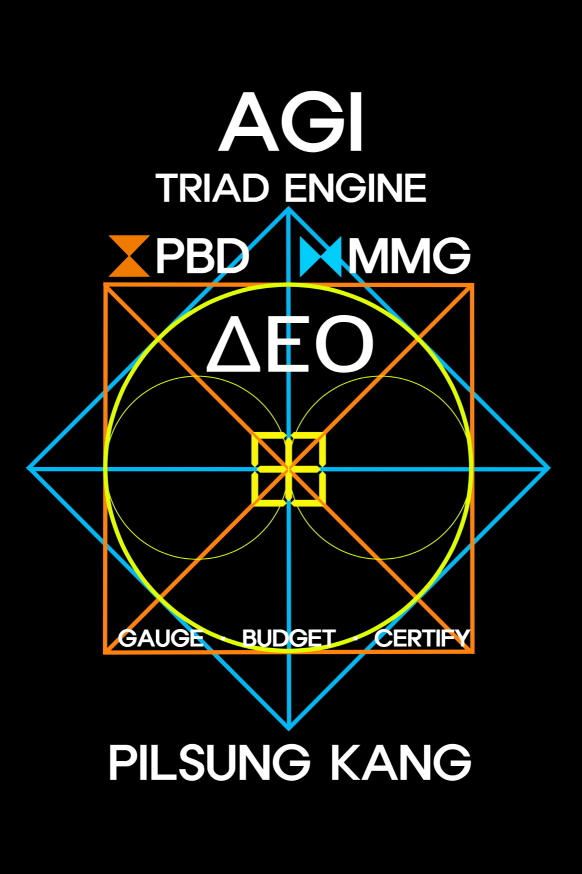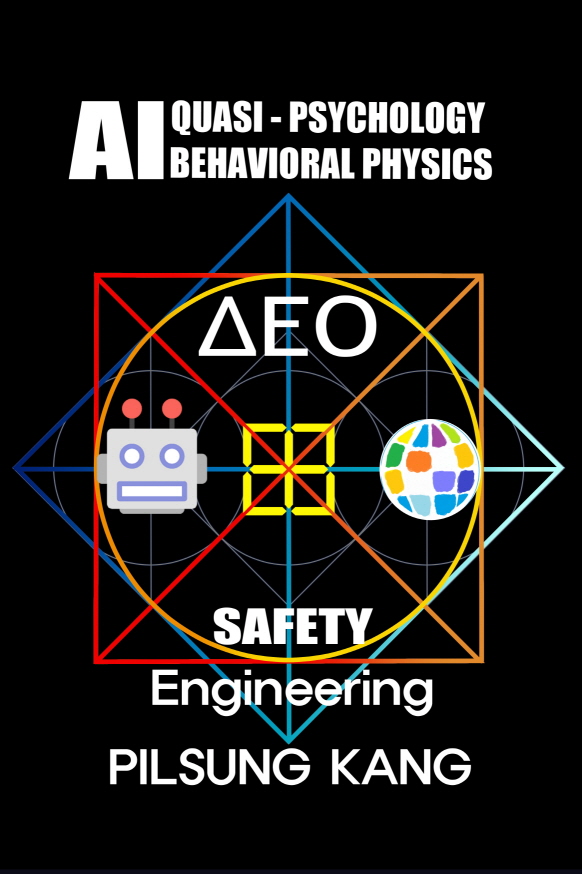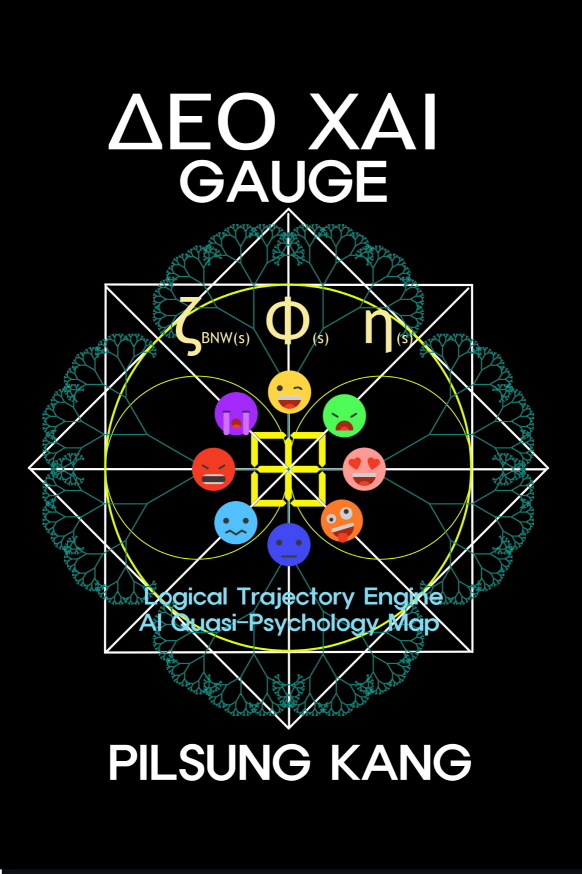
"AI Quasi Psychology"
PILSUNG KANG
AI Quasi Psychology · Behavioral Physics · Quasi PersonalityWhy these three lenses?In real operations, LLMs often ramble, flip answers, overclaim or hedge, loop on tools, and break formats.
Instead of dissecting internals, this book uses an outside-in, controllable language to manage those patterns.AI Quasi Psychology (AIQP): An operations language that links state (stability, uncertainty, evidence, impact) to thresholds and policies, so the same signal yields the same action.AI Behavioral Physics (AIBP): Treats precision, rounding, reductions, resonance/transition, and loops as a “physical layer” with explicit operating rules.AI Quasi Personality (AIQPer): Product-fit style, risk, and evidence habits templated for a consistent tone and attitude.The essence is fewer tuning knobs, more measurable gauges and discrete policies.
The TRIAD ENGINEDEO: Pin where and when transitions, resonance, or loops arise.PBD: Estimate the minimal observation needed per window to decide proceed/hold/impossible.MMG: Close decisions with an Impact → Evidence → Uncertainty chain plus hysteresis into PASS / WARN / FAIL / ABSTAIN.Results: lower cost, fewer loops and hallucinations, higher reproducibility.
What this book provides
1) Ready-to-use ops kitGauge board (S/U/EC/I, numeric stability, connectivity, spectrum shift), AET one-line logs, policy playbooks (pin → budget → gate, hysteresis defaults, justified abstain rules).
2) Cost and risk controlCap exploration with a stochasticity budget, surface a determinism tax, damp tool ping-pong with a loop state machine, and route precision to tame residual nondeterminism even at temperature zero.
3) Quality and factual governanceA first-pass hallucination taxonomy (low-evidence vs. transition-instability vs. policy vs. strategic wrong answer), a two-slot evidence gate with checker, and report formats for precision/recall-style scores, delay, coverage, justified abstains, and zero evidence-gate misses.
4) Dashboard & report kitTimeline (signal/pins/decisions), KPI cards, event stream with AET one-liners, policy levers, risk–coverage curves, and a shadow → canary → rollout guide.5) Expansion to user educationOperators: interpret DEO, tune hysteresis, route precision, audit AET.PM/UX: gauge-first UX, justified abstain experiences, stochasticity budgets.
Compliance: zero evidence-gate misses, enforce No-LLM Zones.End users: prompt hygiene, evidence-first habits, reproducibility with fixed seed/decoding.Who should read thisPlatform/SRE/AIOps teams, risk and compliance, PMs and designers, data and software engineers, and hands-on analysts.Questions this book answersWhy do answers change even at temperature zero? → Numeric stability gauges and precision routingWhy do the same issues recur? → Hysteresis and AET standardizationWhen should exploration expand or contract? → Stochasticity budgets and minimal observationHow to separate hallucination from policy violations? → Split KPIs and labelsHow to read (fast onboarding)Chs. 1–3: AIQP and TRIAD essentials → Chs. 4–6: dashboards, protocols, cost → Chs. 7–8: hallucination/loop catalog and governance → Appendices: setup cards, AET samples, checklists, templates.One-sentence takeawayThis book reframes LLMs from “things to tune” into systems to operate—using a shared grammar of pin → budget → gate to raise cost efficiency, stability, and explainability across vendors and models.



